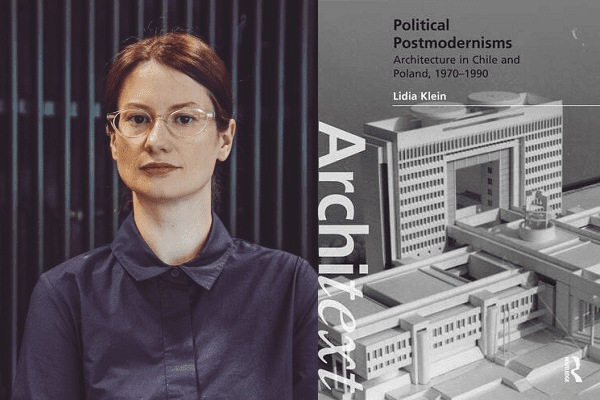Book by Architecture Professor Offers New Look at Postmodernism

Assistant Professor of Architectural History Lidia Klein’s new book, Political Postmodernisms: Architecture in Chile and Poland, 1970–1990, argues for a redefinition of postmodern architecture. While postmodern architecture is traditionally considered an apolitical reflection of capitalist affluence, Klein presents a different perspective, investigating postmodern architecture’s political manifestations in the unlikely settings of Chile during the neoliberal dictatorship of Augusto Pinochet and Poland during the late socialist Polish People’s Republic.
Published recently by Routledge, Political Postmodernisms has three goals. First, it challenges the familiar narrative regarding postmodern architecture as following the “cultural logic of late capitalism” (Fredric Jameson) or as a socially conservative project (Jürgen Habermas). Second, it fills in portions of Chilean and Polish architectural history that have been neglected by Chilean and Polish architectural historians themselves. Third, Political Postmodernisms shows how architecture can work as a political form – serving propagandistic purposes and functioning as part of oppositional projects.
Political Postmodernisms is Klein’s sixth book. Her other book projects include the single-author study, Living Architectures: Biological Analogies in Architecture of the End of the 20th Century (Warsaw: Fundacja Kultury Miejsca, 2014) [in Polish], and edited books, Transformation: Polish Art, Design and Architecture After 1989 (Warsaw: Fundacja Kultury Miejsca, 2017) [in Polish], Polish Postmodernism: Architecture and Urbanism (Warsaw: 40000 Malarzy, 2013) [in Polish], and Making the walls quake as if they were dilating with the secret knowledge of great powers (Warsaw: Zacheta, 2012), co-edited with Michal Libera.
Her newest project is a book on the crisis of modernist urban planning in Eastern Bloc countries.